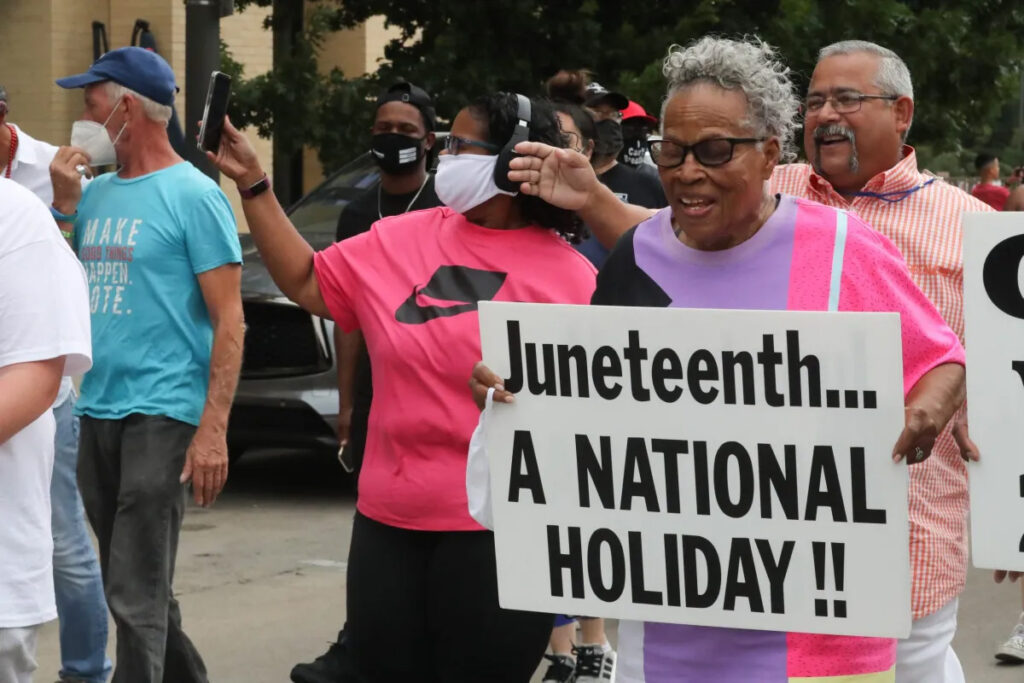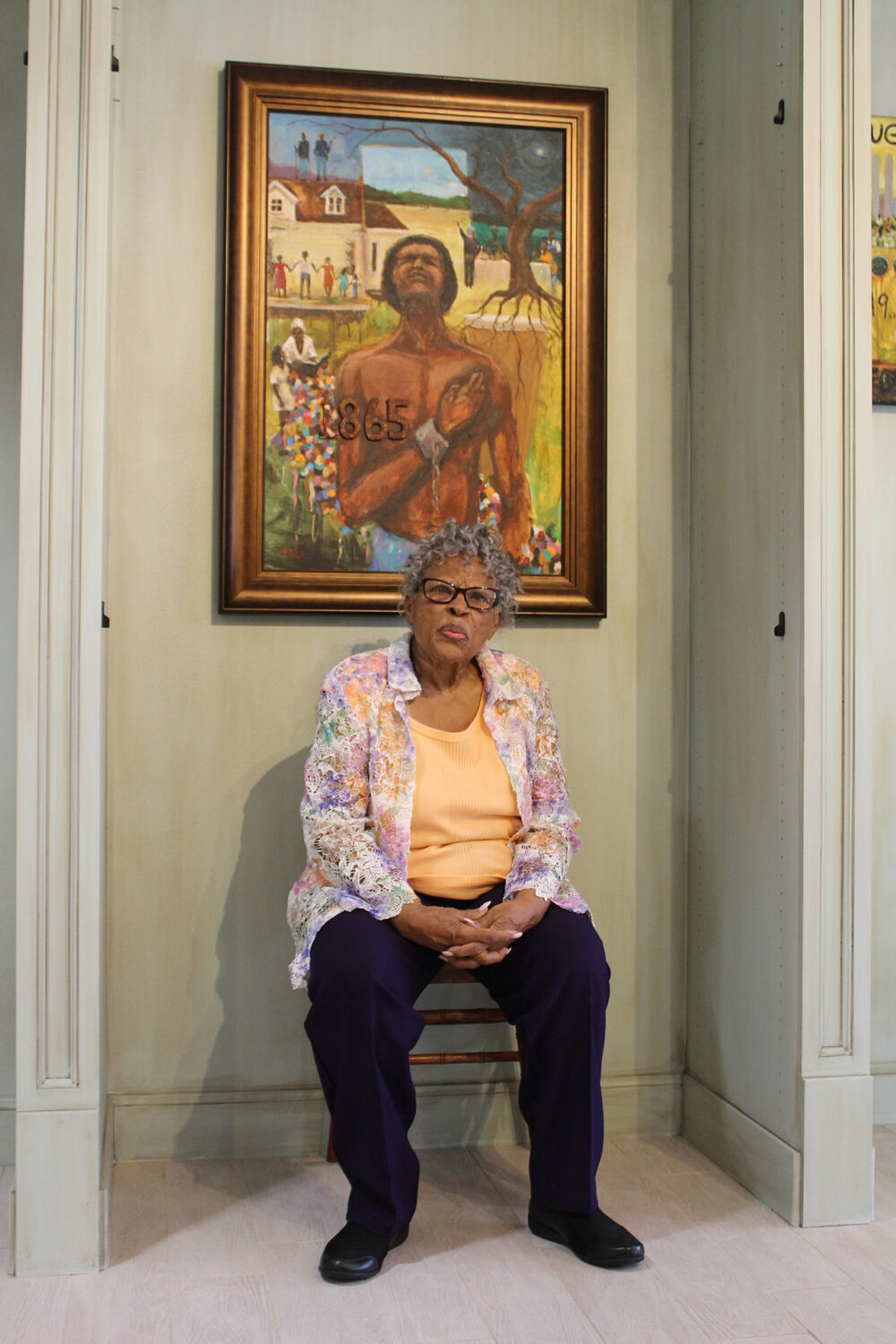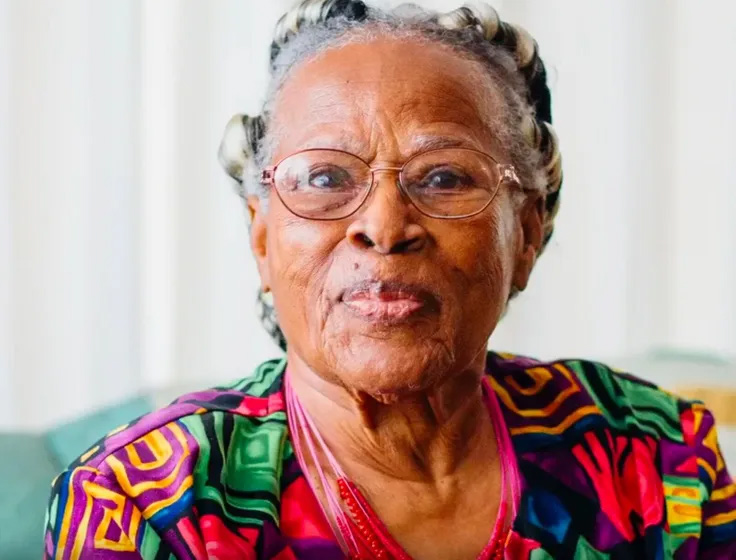Opal (Flake) Lee is a retired teacher and activist who is considered the “grandmother of Juneteenth.” Flake was born on October 7, 1926, in Marshall, Texas, to Otis Flake and Mattie Broadus. When Lee was a child, her family home burned down in a fire, and her father left town to find work but did not immediately return. Her mother moved the family to Fort Worth when she was ten years old, where Flake attended Cooper Street Elementary School. When Otis Flake heard the family was in Fort Worth, he joined them. Mattie Broadus fell on a city bus and was awarded a settlement, which the family used to purchase a home at 940 East Annie Street on the south side of Fort Worth in June 1939. They were the first Black family in the neighborhood, prompting an angry mob of 500 white residents to burn down the home on June 19, 1939.

The family relocated, and Flake graduated from I.M. Terrell High School in 1943. She got married, had four children, and divorced after five years of marriage. Flake returned to Marshall and enrolled in Wiley College. She worked as a maid at the Texas Hotel with her mother while attending college during the day. Flake earned her Bachelor of Arts in 1953 and returned to Fort Worth, where she began teaching at Amanda McCoy Elementary School for $2,000 a year. She took a second job at the Convair aircraft plant to make ends meet.
In 1967, Flake married Dale Lee, the principal at Morningside Elementary, and then enrolled in recently-desegregated North Texas State University (now the University of North Texas), where she earned a master’s degree in counseling and guidance in 1968. Lee then worked as an educator and home school counselor at the Fort Worth Independent School District before retiring in 1977.
At 51, Lee began a new career working at a community food bank in the Jax beer-distributing building. When the building burned down, she and other community workers moved into a warehouse where initially the rent was $4,000 a month. After a year, however, the owner donated the building after he recognized the importance of the food bank to the community. For the past five decades, the community food bank has fed an average of 500 families each week. Lee lives near the warehouse and owns a thirteen-acre farm to grow food for the food bank.

Since the 1970s, Lee has been involved in the preservation of local African American history, which eventually led to the creation of the Tarrant County Black Historical and Genealogical Society, founded in April 1977 by 21 charter members, including Lee. Since its founding, the society organized the annual Juneteenth celebrations. Each year thousands gathered at Sycamore Park to commemorate the official end of slavery in Texas. As part of the celebration, Lee often walked two and a half miles, representing the number of years before Texas enslaved people knew they were free.
In 2016, however, after urging society to “go bigger,” Lee, then 89 years old, walked from Fort Worth to Washington, D.C., to deliver 1.6 million signatures in support of making Juneteenth a national holiday. She began her walk in September 2016, gathering pledges and signatures along the 1,360-mile route, and arrived in Washington in January 2017. Her Juneteenth walk sparked renewed interest in making the day a federal holiday. On June 17, 2021, Lee was present at The White House when President Joe Biden signed the bill to make Juneteenth a federal holiday.

